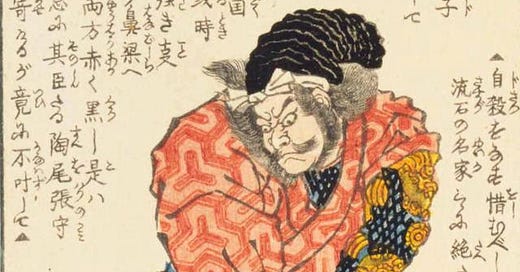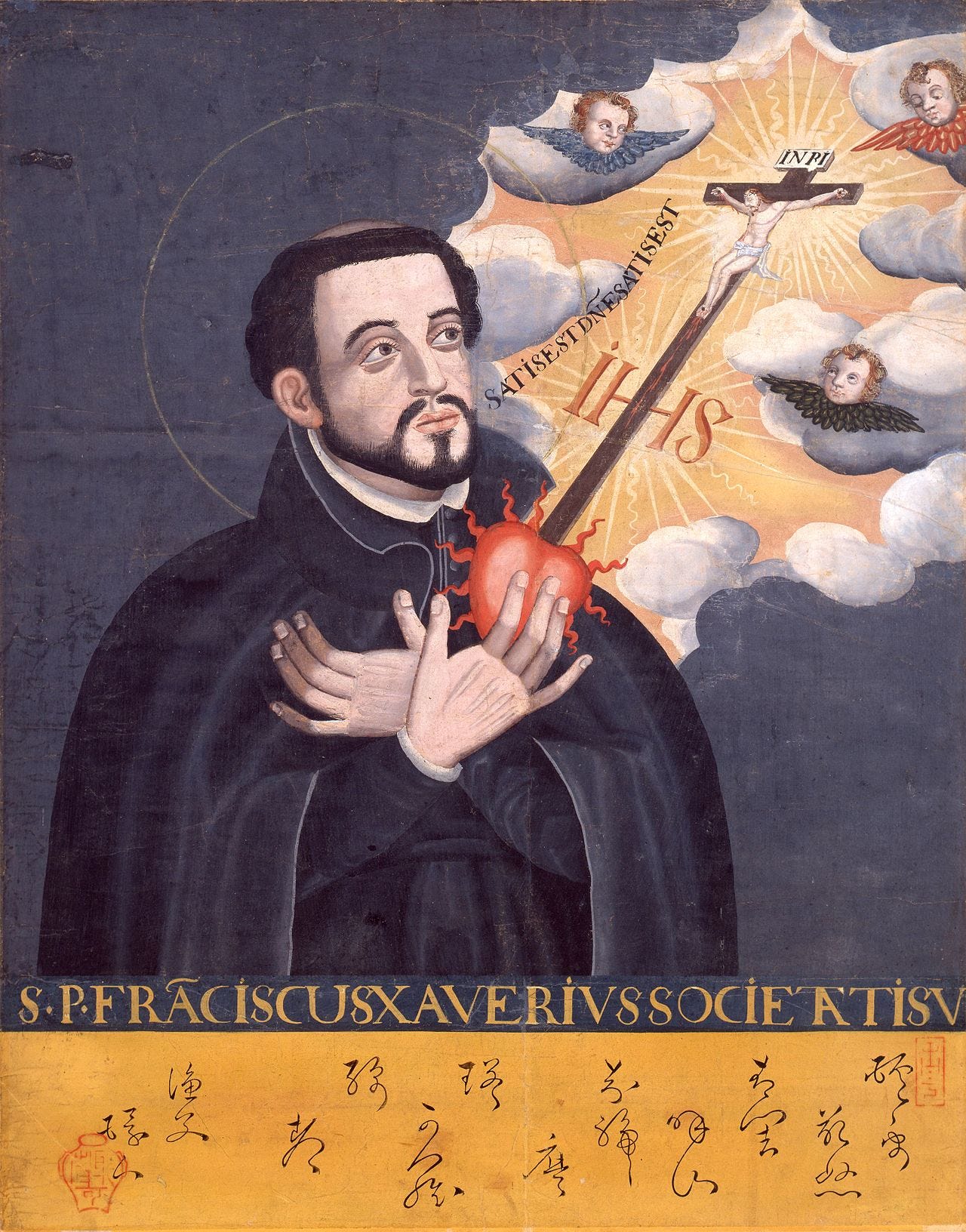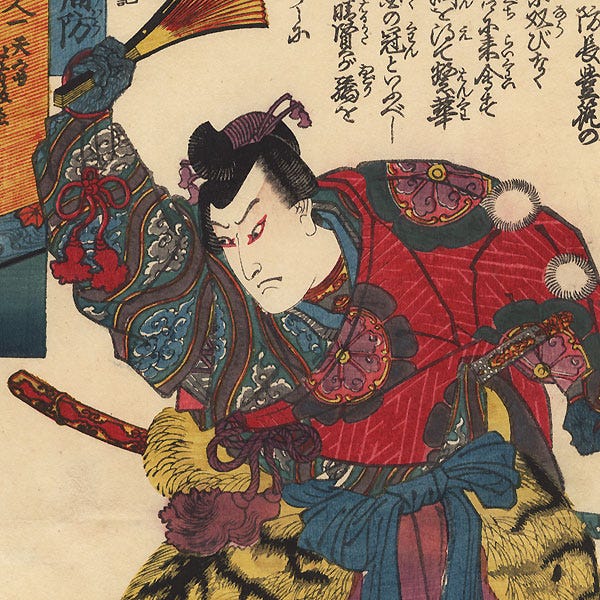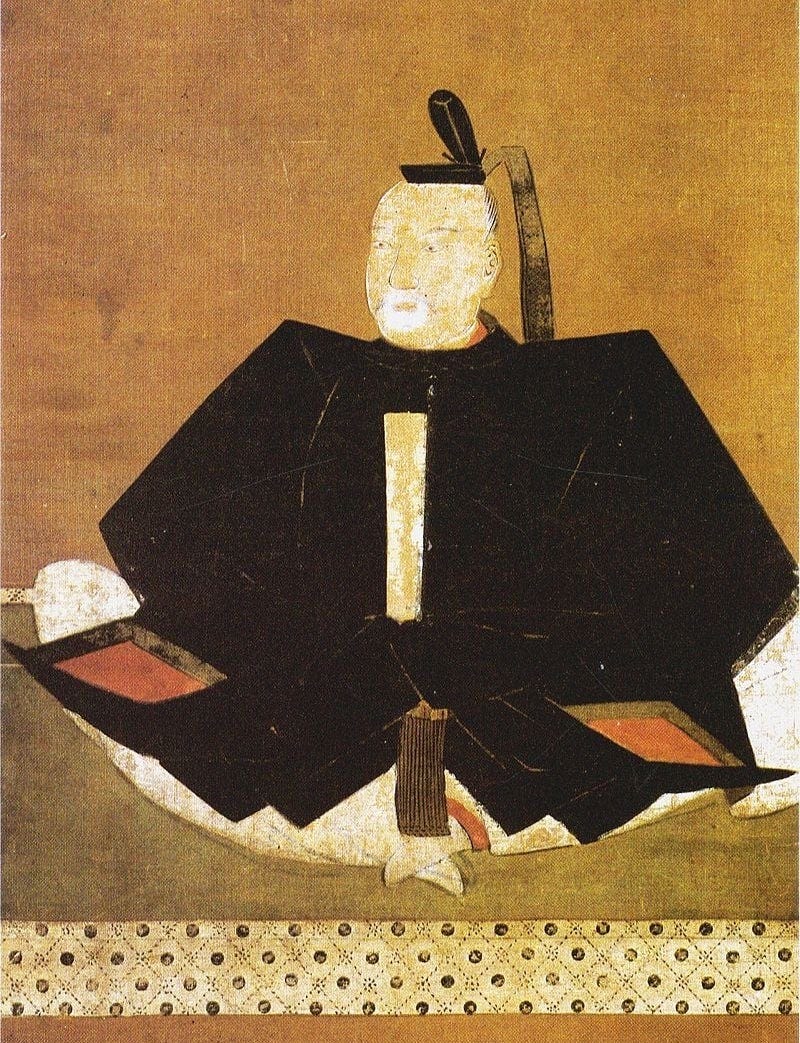Ouchi Yoshitaka (December 18, 1507 – Committed Seppuku September 30, 1551)
Ouchi Yoshitaka was a daimyo warlord of Suo Province (modern-day eastern Yamaguchi Prefecture) ruling from his castle at Yamaguchi. Born December 18, 1507, His childhood name was Kido-maru, a name shared by his father, his grandfather and other successive heads of the Ouchi family. Yoshitaka's status as the legitimate heir was made clear through being given this name to prevent the infighting that occurred in successive generations of the Ouchi family at the time of succession.
Yoshitaka was 21 when his father, the 15th clan head Ouchi Yoshioki, died, and the domain was passed to his hands. Yoshitaka’s father was famed for having restored the overthrown Shogun, Ashikaga Yoshitane to power in 1508, and for building Saijo Castle.
The Shock of Defeat
Having already defeated the Amago clan to win Aki Province, Ouchi Yoshitaka continued to expand his territories, taking northern Kyushu and bringing down the ancient Shoni clan. In 1542, Ouchi Yoshitaka lost his adopted son, Harumochi, and a great many of his samurai during an ill-fated invasion of Izumo (now eastern Shimane Prefecture) when he besieged the Amago clan’s Gassan Toda Castle. Through the shock of the bitter defeat, Yoshitaka seems to have lost his nerve, thereafter refraining from warfare and all desire to increase his land holdings.
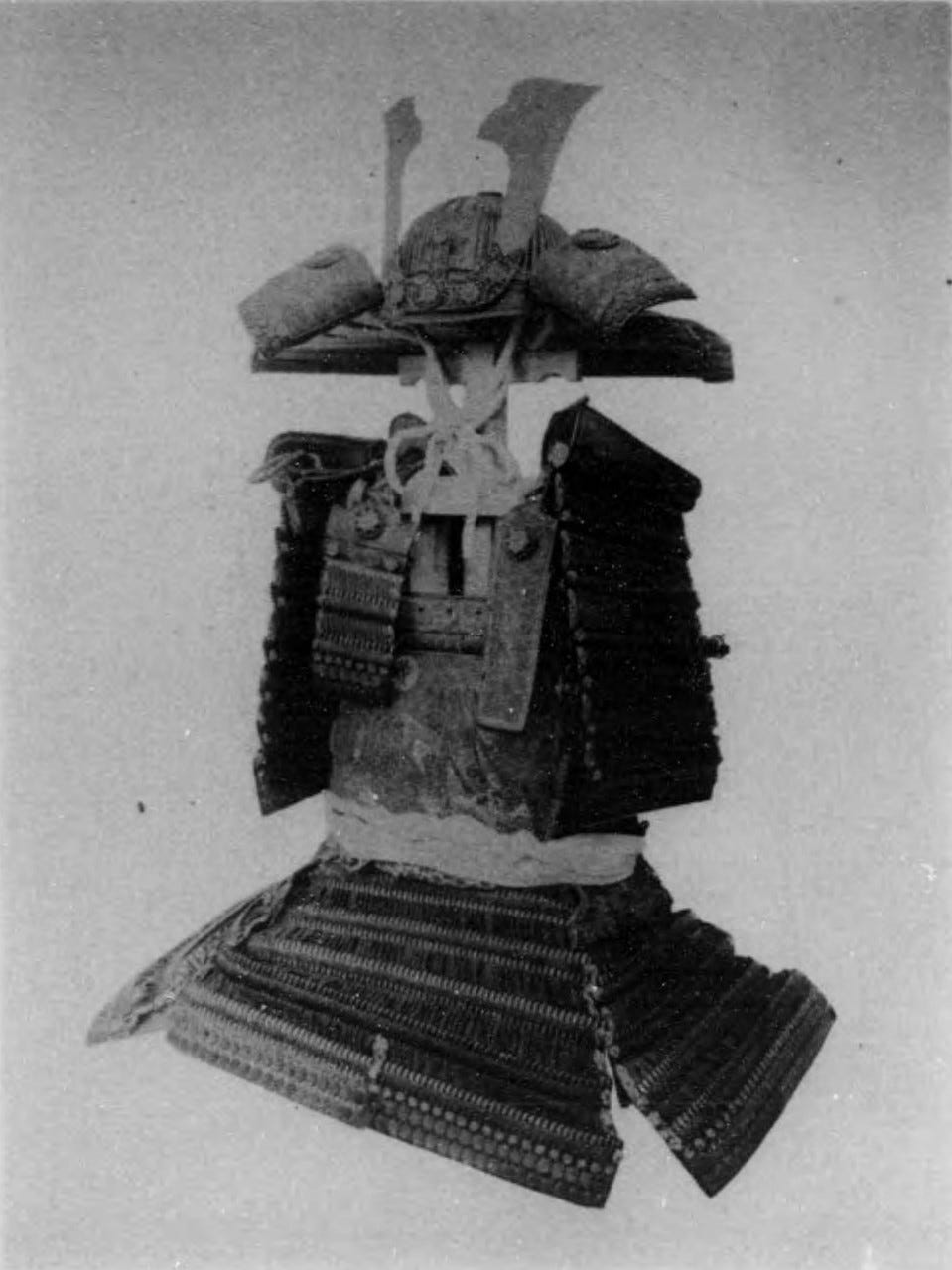
He instead devoted his time not to war, but to pursuing the arts and culture. Yoshitaka promoted foreign trade and the arts, and his lands at Yamaguchi flourished. As a close advisor to the Emperor, he was appointed as Acting Governor of Yamashiro (Kyoto) and protector of the Imperial Court. Under this title, he proposed a plan to have the Imperial court, Emperor and all, relocated to Yamaguchi to free them from the overbearing clutches of the Miyoshi clan who had vast political power over the Emperor and the Shogun. By the summer of 1551, most of the court, except for the Emperor and the palace ladies, were in Yamaguchi preparing for the shift.
This led to further tension between his retainers, who split into two factions, those that chose to follow their lord’s peaceful desires and simply maintain what they currently held, and those that believed they should be expanding their territories, and that having the Imperial House moved to Yamaguchi would dilute their privileges.
The expansionist faction was led by Sue Harukata. In 1551, this group pulled off a coup d’état, overtaking Yoshitaka’s authority within days, slaughtering countless Imperial officials and courtiers, and forcing their master, Ouchi Yoshitaka to commit seppuku around 10pm on September 30, 1551, in the grounds of the Tainei-ji Temple in Nagato, Yamaguchi Prefecture. Yoshitaka's chief vassal, Takayo Reizei, acted as his second. He was two months short of his 44th birthday. Yoshitaka's son was also captured and killed by the rebels the following day. With the deaths of Yoshitaka and his son, the Suo-Ouchi clan was effectively destroyed.
Relations With Francis Xavier
In August of 1550, Francis Xavier arrived in Yamaguchi, but Xavier's perceived lack of courtesy, such as appearing before Lord Yoshitaka wearing dirty travelling clothes and failing to bear suitable gifts, made a poor impression on the Japanese, and he was denied the right to proselytise. Upset, Xavier is said to have accusedYoshitaka of protecting Buddhism, and of debauchery — having sex with men. The accusations simply angered the warlord and destroyed any chances of the foreigners receiving permission to undertakemissionary work. Instead, Xavier left for the Kinai region. In the Ontoku Taiheiki and other works, it is recorded that Kobayakawa Takakage was in a shudo relationship with Yoshitaka but due to the strong literary aspect of the book, this not considered a reliable source. In addition to Takakage, To Ryubo, Seino Shiro and Yasutomi Gennai are also said to have been intimates of Yoshitaka.
In late April 1551, he met with Xavier again. Xavier had learnt from previous experience that appearance was important when meeting with nobles, and this time the missionary dressed his followers in beautiful clothes and presented Yoshitaka with rare cultural relics. The offerings included a letter of friendship from the Portuguese Governor of India and the Bishop of Goa, which had originally been prepared for presentation to the Emperor, as well as a telescope, a western harp, clock, glass jug, mirror, glasses, books, paintings and matchlock guns. Impressed, Yoshitaka gave Xavier permission to proselytise and provided him with the Daido-ji Temple to use as his base, showing Yoshitaka to be an open-minded man.
A Man of Taste
Ouchi Yoshitaka was known as a cultivated and civilised warlord. He interacted with cultural figures such as Sanjonishi Sanetaka, and showed an interest in waka and renga poetry, and in the performing arts. He is also said to have had aristocratic tastes, such as making advances to the Imperial Court in the hopes of obtaining a government post. Instead of riding a horse like most samurai, he preferred the courtly pleasure of riding in an ox drawn carriage while wearing elegant sokutai, court attire.
He was conservative in his policies, issuing a ban on luxuries and laws on the collection of taxes, and often contributed to the reconstruction of temples and shrines. Unlike the self-proclaimed official ranks of other Sengoku period warlords, Yoshitaka and his officials received actual ranks conferred upon them by the Imperial Court.
The Ouchi clan had fought against the Hosokawa clan for the sole right to trade with the Chinese Ming Dynasty and Korean Yi Dynasty From Korea. The Ouchi imported various books from Korea and published their own Ouchi editions. Yoshitaka organised Yamaguchi into a city like Kyoto, and instead of residing in a castle, made Ouchi-kan his residence.
During his lifetime, he was feared by the warriors of the surrounding provinces, but as he generously protected and patronized many temples and shrines, including Itsukushima Shrine and Usa Shrine, he maintained a fine reputation among the clergy, and was praised by cultural figures and court nobles as 'the path-finder of the last generation'. Ouchi Yoshitaka was a warlord of peace and culture.

